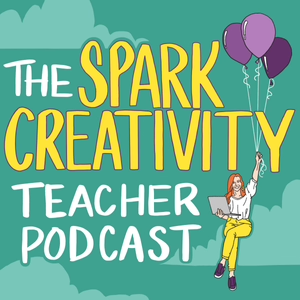
What If You Had a Planning Partner in Your Pocket? UNIT IDEAS SERIES: Adverbs of Frequency
04/22/25 • 14 min
Planning a world language unit doesn't have to be a solo mission - this episode offers a detailed walkthrough of teaching adverbs of frequency with a proficiency-oriented approach. I share my exact five-day plan for introducing, practicing, and assessing this grammar concept in a way that follows the natural language acquisition process.
• Following the gradual release model from input to output
• Day 1: Introducing adverbs of frequency through personalized teacher examples
• Day 2: Contextualizing input through categorization and notebook activities
• Day 3: Incorporating games, songs, and authentic texts with techniques like running dictation
• Day 4: Beginning scaffolded production with information gap activities
• Day 5: Extensive practice through "speed dating" activities followed by assessment
• Designed for block scheduling but adaptable to different contexts
• Perfect for novice high and intermediate low proficiency levels
• Opportunities to recycle previously learned vocabulary while introducing new concepts
Let's connect:
Get the Free World Language Teacher Toolkit
Get the Free Roadmap to Proficiency
Website
TPT
Instagram
Youtube
Facebook
Planning a world language unit doesn't have to be a solo mission - this episode offers a detailed walkthrough of teaching adverbs of frequency with a proficiency-oriented approach. I share my exact five-day plan for introducing, practicing, and assessing this grammar concept in a way that follows the natural language acquisition process.
• Following the gradual release model from input to output
• Day 1: Introducing adverbs of frequency through personalized teacher examples
• Day 2: Contextualizing input through categorization and notebook activities
• Day 3: Incorporating games, songs, and authentic texts with techniques like running dictation
• Day 4: Beginning scaffolded production with information gap activities
• Day 5: Extensive practice through "speed dating" activities followed by assessment
• Designed for block scheduling but adaptable to different contexts
• Perfect for novice high and intermediate low proficiency levels
• Opportunities to recycle previously learned vocabulary while introducing new concepts
Let's connect:
Get the Free World Language Teacher Toolkit
Get the Free Roadmap to Proficiency
Website
TPT
Instagram
Youtube
Facebook
Previous Episode

Language Glue: Why Your Students Can't Remember What You Taught Them
Language teachers everywhere face the same challenge: how do we create units that actually lead to acquisition instead of just memorization? The answer lies in understanding how our brains naturally process and store language.
In this eye-opening episode, I break down the six-phase structure that every successful proficiency-based unit must follow. Starting with context-rich input (the "glue" that makes language stick in students' brains), we explore how declarative versus procedural knowledge explains why students can sometimes recite grammar rules perfectly but freeze during conversations.
You'll discover why rushing through the comprehension phase is a critical mistake that prevents true acquisition, and why many teachers unwittingly sabotage their students' progress by skipping essential steps in the acquisition process. I share practical, classroom-tested strategies for each phase - from input introduction through comprehension, gradual output release, authentic contexts, presentational practice, and finally to meaningful interpersonal communication.
Using comparisons as our example structure, I demonstrate how to adapt this framework for both brand-new concepts and reviewing previously introduced language. You'll learn how to determine appropriate timing for each phase based on your specific teaching context and student needs, rather than arbitrary pacing guides.
Whether you're teaching novice learners or advanced students, this structural framework provides the scaffold your proficiency-oriented units need. Stop wondering why your students struggle to use language they've "learned" and start designing units that follow the brain's natural pathways to language acquisition.
Have you tried structuring your units this way? Share your experiences in the comments or on social media using #PracticalProficiency. And if this episode helped you, please leave a review to help other teachers discover these strategies!
Let's connect:
Get the Free World Language Teacher Toolkit
Get the Free Roadmap to Proficiency
Website
TPT
Instagram
Youtube
Facebook
Practical Proficiency Podcast - What If You Had a Planning Partner in Your Pocket? UNIT IDEAS SERIES: Adverbs of Frequency
Transcript
What's up , keloke Et salut world language teachers . Welcome to the Practical Proficiency Podcast , where we make the transition to proficiency-oriented instruction in your world language class in a way that works for you , your unique context and teaching style , and doesn't sacrifice your well-being along the way . I'm your host , devon Gunning , the teacher author , conference host , c
If you like this episode you’ll love
Episode Comments
Generate a badge
Get a badge for your website that links back to this episode
<a href="https://goodpods.com/podcasts/practical-proficiency-podcast-315731/what-if-you-had-a-planning-partner-in-your-pocket-unit-ideas-series-ad-89824410"> <img src="https://storage.googleapis.com/goodpods-images-bucket/badges/generic-badge-1.svg" alt="listen to what if you had a planning partner in your pocket? unit ideas series: adverbs of frequency on goodpods" style="width: 225px" /> </a>
Copy




